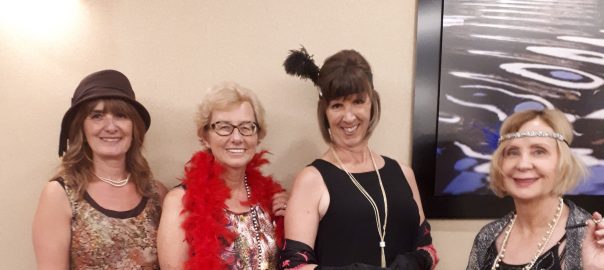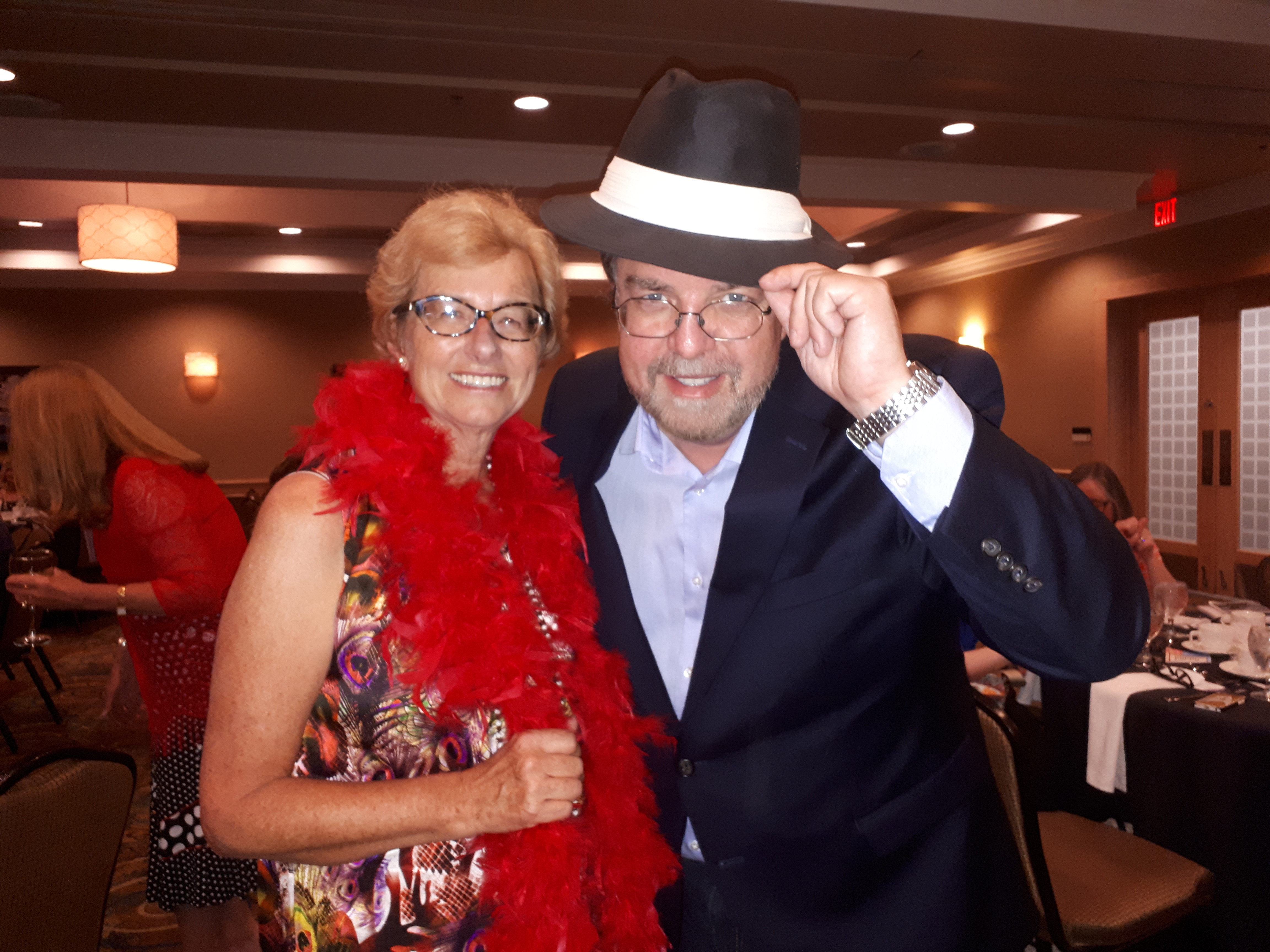My BWL blog post topic today – war & tulips – turns out to suit Mother’s Day with its talk of flowers and the birth of a Dutch princess in Canada. https://bwlauthors.blogspot.com/


My BWL blog post topic today – war & tulips – turns out to suit Mother’s Day with its talk of flowers and the birth of a Dutch princess in Canada. https://bwlauthors.blogspot.com/

While researching 1918 fashion for my historical-novel-in-progress, I stumbled upon a 1918 Sears, Roebuck and Company catalogue, which someone had uploaded on the internet. The catalogue’s 1,676 pages provided a treasure trove of details about that year in time and brought back memories of my catalogue browsing in my younger days.
In Canada, where I grew up, the Eaton’s mail-order catalogue was a mainstay in middle class homes from the early twentieth century until the catalogue expired in 1976. My cousin, who lived in the countryside, ordered all her back-to-school clothes from the thick fall/winter catalogue. My aunt in the city turned ordering and returning catalogue items into a hobby. Her husband joked that the Eaton’s delivery truck made a daily beeline to their street. Catalogues were the forerunner of today’s online shopping although they couldn’t offer one-day service.
I don’t recall purchasing many catalogue goods, but I enjoyed flipping through the pages to see what was available. A common joke of the time was that little boys–and not so little ones–spent hours studying the ads for women’s underwear. I expect boys living 100 years ago were equally intrigued by the 1918 catalogue’s not-so-demure ladies modelling corsets. Prices for these complex articles of clothing ranged from $1.85 to $3.98 for Sear’s finest corsets. Corsets for children and teenage girls started at 98 cents.
I always find it interesting when old or historical books cite prices that are stunningly lower than today’s costs. On the next revision of my historical novel, I’ll look for ways to subtly insert a few 1918 prices into the story. While the earlier drafts mentioned corsets and petticoats, my catalogue stroll reminded me that people wore more underwear a century ago because houses were colder. The 1918 Sears catalogue featured twenty-eight pages of long underwear ads for women, men, and children. A note explained that wool underwear had become scarce because the Government required woolen mills to prioritize supply to soldiers and sailors fighting the Great War. Most civilians would have to make do with cotton underwear.
The one-piece undershirt and underpants garment was called a union suit in 1918. Long underwear was originally designed to liberate women from corsets, petticoats, and stockings. Perhaps I’ll have my protagonist wear a pair of long johns under her housedress to stay warm in her chilly home. Catalogue ads for coal kitchen stoves, called ranges, promoted their side benefit of warming the room in winter. Customers could purchase ranges fueled by hard coal, soft coal, wood, coke, corn cob, and/or gas. No kindling required. They’d start the stove with a lit piece of paper that might be a page from last season’s catalogue. Old catalogue pages also served as toilet paper and little girls cut out pictures of the models for paper dolls–the original Barbies.
All of these details would add period interest to a historical story and the 1918 catalogue offered many more. Women’s muffs and collarettes made from the fur of China goat, raccoon, opossum, muskrat, marmot, and weasel. Ostrich plumes for hats. Seventeen pages of pocket watches, watch chains, and watch fobs. Collar boxes with a round form inside to keep the shape of men’s shirt collars. Wool robes for riding in open-top buggies and cars.
The catalogue also sold War Savings stamps to “support our boys at the front,” official war pictures taken by the US government of trenches, gas attacks, and war ruins for ten cents each, and rubber face masks, presumably to improve complexion. The catalogue states, with surprising candor, “The usefulness of rubber masks has been exaggerated. We make no specific claims for these articles, but we offer them for women desiring them.” They also offered a washable rubber night strap to reduce double chins for the bargain price of forty-nine cents.
If you’re interested in your own stroll through 1918 daily life check out Sears, Roebuck and Co. Chicago: Originators of the Guarantee that stands the test in the Scales of Justice. https://archive.org/details/catalog1918sear/page/n3/mode/2up

On today’s BWL insider blog, I write about some fascinating historical research https://bwlauthors.blogspot.com/

On January 25th, I fell on an icy Calgary sidewalk and injured the muscles around my hip. During the following week, I thought I was recovering enough to do a hike in the mountains and then a long walk on ice-covered Lake Louise. Two days later I couldn’t hobble across my kitchen without feeling pain. This prompted me to see my doctor and a physiotherapist.
An X-ray determined no fractures, broken bones, or misalignment. The physiotherapist thought my injuries were relatively minor and said they should resolve in a few weeks with rest, exercise, and physio treatments. The problem was that I was scheduled to leave in two weeks for a hiking holiday in Arizona with 33 members of my Calgary hiking club. The physio and I doubted I’d be able to hike by then and, if I could, the exertion might set my recovery back, as it had done on the earlier hike and Lake Louise walk.
I still planned to go on the trip but prepared to spend some or all of the days resting my hip in the Airbnb house my husband Will and I were renting with some other club members. I downloaded numerous books to read and organized writing work to do on my computer. It wouldn’t be terrible to relax outdoors in warm sunshine and I’d still enjoy evening dinners and entertainment with the group, but the prospect of missing the main purpose of the trip was disappointing.
My progress through four physio sessions was slow. I faithfully did my exercises and barely stepped outside for two weeks. The weekend before we left, I tried a few neighbourhood walks. After half an hour, my hip was sore and I couldn’t wait to shuffle home.
Will and I flew to Phoenix on February 20th and spent the next day walking around Scottsdale. My hip was fine but tired by the end. I still decided to try the shorter version of first hike the following day. To my surprise, I felt no discomfort with my hip. Nor did my muscles bother me much the next morning. So I joined my fellow hikers again and then again on day # 3. All of these hikes involved clambering over big rocks. How many rocks could there be in Arizona?

Day # 4 featured a hike along Saguaro Lake, which I’d done seven years earlier and recalled as being relatively easy. The elevation was less than that of first three hikes and the lakeside trail was mainly dirt with small rocks to step around. A picnic lunch and relaxing boat cruise on the lake followed and then an evening at the Silver Star dinner theatre with 1950s & early 60s that brought back memories.

The fifth day’s hike was longer the previous ones (about 14 km vs 8 km). I suggested to my housemates that we do something shorter, but they wanted to go with the group and I went along. I’m glad I did and I enjoyed the first half of the hike, but my hip ached with every step of the last section. I decided 8 km was the limit for my hip. The highlight of this hike was a rare crested saguaro cactus. The abnormal growth formation at the top is found in one in roughly 10,000 saguaros.

On day # 6, we drove to Wilcox, Arizona, our gateway to the Chiricahua National Monument. The first afternoon we did an 8 km hike over comfortable terrain to a view of Natural Bridge.

For our final hike of the trip, the plan was to do a 14+ km long loop. After six straight days of hiking, nine of us opted for a shorter loop through fabulous scenery at a leisurely pace. It was the one day I wanted to keep on walking at the end.

The forecast called for rain starting at noon, but the sunshine stayed in the park. Will and I enjoyed a late lunch at a beautiful viewpoint.

Now I’m home and my hip still feels a little sore, but I can’t say the seven days of hiking set my recovery back. I’m grateful I was able to experience so many wonderful sights and great companionship on the trails. These days, I’m giving my hip its well-deserved rest, doing my exercises faithfully (more or less), and trying to avoid another fall on Calgary’s icy sidewalks.


On today’s BWL Blog, I write about my fun and busy winter escape to Arizona and my less enjoyable fall on ice in Calgary. https://bwlauthors.blogspot.com/

I don’t write romance novels, but most of my mystery and suspense books have romantic subplots. This shouldn’t be surprising since I love Jane Austen’s novels, which always centre on romance. A few years ago, while visiting my friend Barb in the UK, we went to Jane Austen’s home in Chawton and dressed in costumes of the times.

Jane Austen had the romance formula down pat – keep the lovers in conflict and separated through the story until the end, when they realize they are right for each other. Their conflict and separation can be caused by external problems (family objections, war, geography) and/or internal flaws.
In my first novel, A Deadly Fall, my heroine/sleuth Paula struggles with both types of problems. She falls for a man who is a suspect and she’s committed to a boyfriend (two external impediments). Internally, she’s burned from her recent divorce. As the story progresses, Paula learns she must take risks to find love again.
In book # 4 of the series, Paula and her current boyfriend are stranded on different continents due to the COVID-19 world shutdown. Their separation challenges their relationship. But the novel’s greater romantic subplot belongs to Detective Mike Vincelli, a secondary narrator. Mike is attracted to a coworker, but his fear of failure and reluctance to shake up his comfortable life conflict with his desire to make their involvement personal.
Typically the romantic subplot reflects the protagonist’s personal journey in stories that are primarily about other things–finding the treasure, defeating an enemy army, solving a murder. While navigating romantic entanglements, heroes and heroines learn the lessons they need to resolve their problems.
My current mystery-novel-in-progress, A Killer Whisky, has two romantic subplots. The main one features my two story narrators, Katharine, who witnesses a suspicious death, and Bertram, the detective investigating the case. The story is set in 1918, during the last days of WWI.
Katharine’s loyalty to her husband fighting in France clashes with her attraction to the attentive detective. Bertram’s obstacles are largely internal–he can’t move past the deaths of his wife and son. Through the story events, Katharine and Bertram must discover what they want in life after the war is over.
A Killer Whisky’s second romantic subplot involves two suspects, who are non-viewpoint narrators. Their romance fuels the murder investigation plotline. I find their relationship fun and am curious to see how it works out.
Or doesn’t work out.
When romance is merely a subplot, it doesn’t have to follow the romance novel tradition of bringing the lovers together in the end. Actually, my impression is that romance novels today don’t require this either. I can’t think of book example but a successful romantic comedy movie springs to mind ** spoiler alert ** My Best Friend’s Wedding.
Whatever your current romantic journey — Happy Valentine’s Day!

Me in Puerto Vallarta with Richard Burton and Elizabeth Taylor. Their grand romance had numerous ups and downs that captured the world’s imagination.

What would be more appropriate for Valentine’s Day than a blog post about romantic subplots in novels? https://bwlauthors.blogspot.com/

Last May my husband Will and I saw the John Steinbeck play, Of Mice and Men, at the Leeds Playhouse in England. This theatre experience was different from our one the previous week in London. Tickets in Leeds were about a quarter of the London price. That Tuesday the Leeds theatre was a quarter full and we were probably the only non-Brits present. In London we packed the theatre with a large number of tourists.
Of Mice and Men is set in the United States during the Great Depression. It tells the story of two migrant workers who dream of owning their own farm. Being Steinbeck, their dream turns to tragedy at the end. Before seeing the play, I wasn’t familiar with the story, but afterward references to the novel kept popping up. This began later in our holiday, when we visited Alloway, Scotland, the birthplace of Robert Burns, who is widely regarded as Scotland’s National Poet.

Burns birthplace cottage, Alloway, Scotland
Viewed as a poet of the working class, Burns wrote in a light Scots dialect. He’s affectionally called Rabbie by his Scottish fans. Of course, we’d sung his song/poem Auld Lang Syne on numerous New Year’s Eves, but on this visit we learned that another Burns’ poem, To a Mouse, was the inspiration for Of Mice and Men. Burns wrote the poem after he accidentally destroyed a mouse’s nest with his plough and realized that, with its nest gone, the mouse wouldn’t survive the winter. These lines inspired Steinbeck:
The best laid schemes o’ Mice an’ Men
Gang aft agley,
An’ lea’e us nought but grief an’ pain, For promis’d joy!
When I returned home from my trip, a library book I’d put on hold was waiting for me: Prince Harry’s memoir Spare — I confess I read it. While discussing his teenage lack of interest in literature and academics, Harry says the one book that grabbed him was Steinbeck’s Of Mice and Men, which was assigned in his English class. He liked that the book was short and, unlike Shakespeare, the plain language didn’t need a translator. Most of all he could relate the story’s themes of friendship, brotherhood, and loyalty to him and his brother William. The brothers’ story ebbs and flows through Harry’s memoir and crashes at the end.
In 2009 Burns was voted the greatest Scot by the Scottish public in a contest hosted by a Scottish TV show. Since then Burns has run into criticism. Some feminists interpret his lusty poems and lifestyle as sexist. He had twelve children by four women. Seven were illegitimate, including the first four by his wife Jean Armour. By Scottish law they became legitimate after the marriage. According to a museum plaque, Jean raised one of the illegitimate children born after she and Rabbie married — it gets complicated.

Others criticize Burns for accepting a job as bookkeeper for a Jamaica slave plantation. In the end, he didn’t go to Jamaica for personal reasons.
It might also be that the Scots dialect in Burns’ poems has fallen out of favour with younger readers, like Shakespeare’s language for Prince Harry, and doesn’t resonate with an increasingly diverse public.
But many Scots around the world still adore Burns and celebrate his birthday, January 25, at Burns’ dinners, which traditionally include such iconic Scottish features as a bagpiper greeting guests and a whisky toast to the haggis.


My new year’s offering for the BWL website is a post about visit to poet Robert Burns’ birthplace in Scotland. https://bwlauthors.blogspot.com/
Best wishes for a happy and healthy 2024.

The Day of the Dead displays were still on the Malecon when my husband Will and I arrived in Puerto Vallarta, Mexico, on November 15th. Plaster and papier mâché skulls, altars, and Catrinas lined the ocean boardwalk, remnants of Nov 2nd’s Dia de los Muertos – the day many Mexicans honour their deceased relatives and friends with celebrations, parades, and visits to gravesites. The Malecon’s most impressive display was the elegantly dressed skeleton lady standing 74 feet 4.9 inches tall. Last year the Guiness Book of Records declared her the tallest Catrina in the World. In 2023 she returned in a new outfit that shimmered in the breezes. At night a loudspeaker piped her voice to the Malecon crowd, “I am the most beautiful woman in Puerto Vallarta.”
Monday November 20th was Revolution Day, a national holiday in Mexico. Will and I got curbside seats for the parade, which features school groups dressed in traditional costumes, often in the colours of the Mexican flag – green, white, and red. The parade moves in a stop and start style as the groups stop to perform dances and acrobatics for the crowd. We really enjoyed the first few acts, but then ten, fifteen, twenty minutes passed. The children gathered in shady spots to wait. By then we were getting hot and retreated to our hotel pool.
Mexico doesn’t celebrate Thanksgiving, but restaurants offer US Thanksgiving dinners for tourists. Will and I treated ourselves to a buffet Thanksgiving meal at a beachfront hotel.
Before dinner, we worked up an appetite with a Malecon walk and discovered that our Giant Lady had been dismantled. Her head and bones awaited pickup the following day.
Before we left downtown Puerto Vallarta for our relaxing beach week, stores and hotels were setting up displays for Christmas, another festive time of year in Mexico.
Merry Christmas and Happy New Year! Feliz Navidad y Prospero Ano!